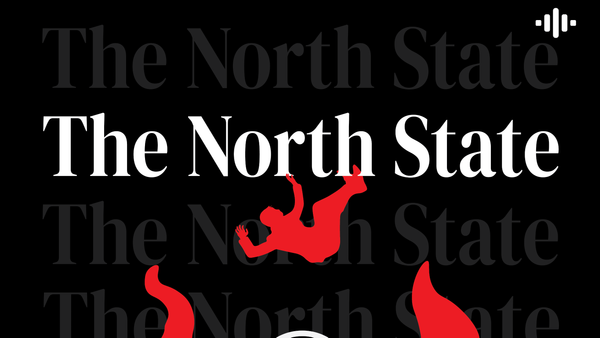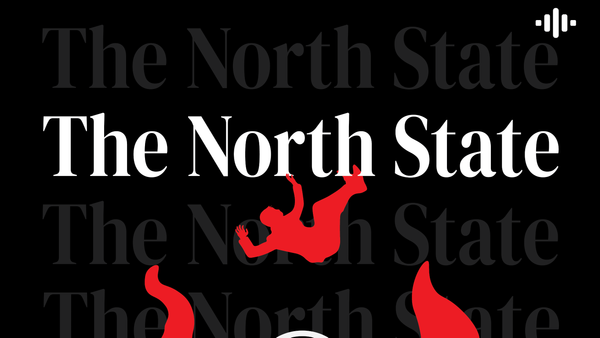The Inevitable Vice Article
It's only February and journalism will never be the same

Following a long day of rumours and anxiety, fears were confirmed on Feb. 22 when Vice CEO Bruce Dixon announced the company would no longer publish on Vice.com and hundreds of layoffs would take place, as has already begun. The news has hit journalists particularly hard across the board.
Detailed takedowns of the high executive pay that Vice doled out have been written elsewhere, so that won't be done here. But it's important to note some of the specifics of executive compensation done at the expense of the workers. Chris Thompson at Defector wrote an excellent piece to this end, that I highly recommend you read, but here's a relevant passage, which is itself largely sourced from a HellgateNYC post made by Katie Way, a former senior writer at Vice.
Vice chief communications officer Jonathan Bing took home $640,000 in salary and bonuses in the 12 months prior to Vice's bankruptcy filing; chief operating officer Cory Haik took home $726,000; executive vice president Subrata De was paid $779,000; chief marketing officer Nadja Bellan-White hauled in $835,000.
Highly-paid executives in the journalism industry are both the wealthy riflemen paying for a canned hunt and the inevitable scavengers picking at the carcass of the recent kill. There isn't a single large news corporation that wouldn't do the exact same thing in Vice's position.
The Catch has written extensively about the shuttering of news, even about layoffs at Vice, specifically. While this latest round ultimately translates into another tree felled in the dwindling forest of news, there seems to be a tipping point that we've reached as a society. News cannot continue in its current form. The way forward must realize its radical potential.
An Internal Tension
Journalism has to walk a fine line. On the one hand, its proclaimed purpose is holding power to account; To shine a light on the issues in our societies and corruption in our institutions so they can be rectified. The intrepid journalist, spending endless nights poring over documents, asking the tough questions and meeting anonymous government sources. Just picture whatever you know about Watergate, and that's the image journalism hopes to cultivate.
On the other hand, these institutions are corporations, aiming to create profit for their owners or shareholders. Traditionally publicly funded outlets like CBC operate in the same structure but under the capitalist governments that create them, so they have similar ideologically driven goals. Though the particulars of these funding structures shapes their coverage in different ways, the systems that run our news are the same seats of power that they purport to be scrutinizing.
As The Catch has repeatedly analyzed, this leads to coverage that repeatedly omits a systemic critique. This manifests in different ways. Lately, anti-Palestinian bias has been undeniable, but we've seen other instances where retirement is painted as something not worth pursuing or anticommunism leads coverage to be sympathetic towards actual Nazis.
Vice's shuttering, meanwhile, was inevitable as their financial problems made more and more headlines. This came alongside their increasingly scrutinized ties to Saudi Arabia, which included dealing with millions tied to Saudi government entities and pulling a documentary critical of the country. These two dimensions are intrinsically linked. Rather than solving their financial woes by cutting executive pay and providing better resources to reporters, they chose to align with hard-right forces. Needless to say, this is a microcosm of tactics that corporations have followed for more than a century: Starve out avenues for worker power while collaborating with other reactionary forces.
As mentioned in a previous Catch article, this is also a continuation of the layoff culture forced upon news media workers for the past few years, especially in 2023. This time, however, the compounding crises imposed upon journalism have a clear and tangible solution.
Worker-powered Journalism
In that Catch article, I pointed to outlets like 404 Media, which has since been revealed to have turned a profit in a tidy six months. News of these journalists creating a profitable outlet is surprising, but it really shouldn't be. Their structure incentivizes each of the four owners, previously employed at Vice's Motherboard, to work for themselves and for each other. Each journalist owns 25 per cent of the company and chooses their compensation in monthly meetings according to their revenue. As the Nieman Lab piece notes, "The number changes each month, but everyone gets paid the same amount."
Defector showed a total revenue of ~$4,500,000, with their operating expenses totaling ~$4,400,000. Why such a slim profit? Their employee-owner compensation and benefits total $2,750,000. Clearly, Defector is doing something right.
This model focuses on the labour of workers and compensates according to that structure. Even more promising alternatives arise when directly discussing worker cooperatives, business entities where employees directly own the business.
Defector Media has a similar story. Many of the founders worked at Deadspin before mass resignations came when a "new private equity ownership took over." But crucially, Defector's structure is explicitly that of a worker cooperative. Since beginning operations in September 2022, they've continued to do great journalism in the sports sphere, as well as other pieces in politics and culture, as the need arises.
In their last annual report, released in November of 2023, Defector showed a total revenue of ~$4,500,000, with their operating expenses totaling ~$4,400,000. Why such a slim profit? Their employee-owner compensation and benefits total $2,750,000. Clearly, Defector is doing something right.
Don't be fooled, coops are often not an easy path to build. Many remember the summer of 2021 when Nathan J. Robinson, founder and Editor-In-Chief of the nominally socialist Current Affairs, unilaterally fired all of the staff for voting to turn the outlet into a coop. The main lesson to be taken from that debacle is that bosses are never on the sides of worker-journalists, even when they proclaim to be. Better to pool resources with fellow reporters to found a structural institution than trust democratic processes to be followed in an environment that necessarily forbids democracy (the workplace).
No Illusions
These worker-centred structures are inspiring, and show there is a way to conduct reporting outside of the typical corporate structure that dominates and decimates our news. But it would be irresponsible to claim worker cooperatives as a cure-all solution to capitalism and its incentives. Coops still need to pursue profit, albeit in less predatory ways. They also operate within the same broader ideological framework of society and their respective governments. They're still susceptible to the economic forces of neoliberal capitalism. Large revenues, like the ones earned by Defector, are unlikely to be achieved in areas outside of metropolitan centres, or on coverage that doesn't apply to a wide audience. These limitations can't be ignored.
But compared to the current landscape of news, there seems little viable alternative in the short term. These companies chase profits above all else. Meanwhile, our governments are more interested in performative outrage than actually solving the problem. Between worker-controlled outlets prioritizing the well-being of their employees and the ravenous monster of unrestricted capital, there is no choice. The former shows promise and results in good work, while the latter guts the good work to prioritize interests of capitalists.
The pieces analyzing why Vice failed are good to see. Executives need far more scrutiny in mainstream discourse. But if we fail to propose viable alternative structures, people will lose hope of any improvement. Journalism is in a unique position to finally live up to its potential. When news agencies are owned and run by working-class people, the ruling class has much more to fear. Most forces within the outlet that defend capitalism have been removed.
Greater scrutiny, better work, more cogent critiques. This can be the future of news.





